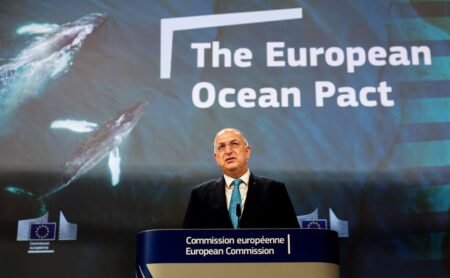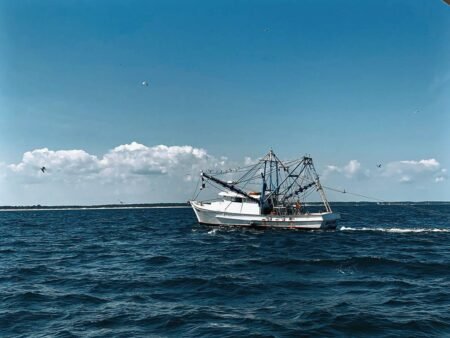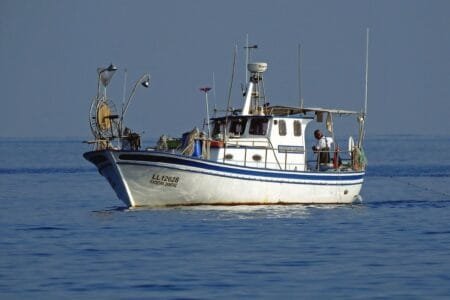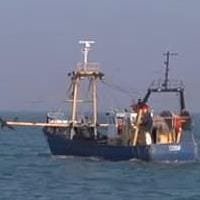The European Commission, on behalf of the EU, decided on 27 June to lift the yellow card acknowledging the progress made by Taiwan and the major upgrade of its fisheries legal and administrative systems to fight against illegal, unreported and unregulated fishing (IUU).
Advertisement
What is IUU fishing?
IUU fishing stands for illegal, unreported or unregulated fishing.
The European Union IUU legislation applies to all fishing vessels, under any flag, in all maritime waters.
A fishing vessel is notably presumed to engage in illegal, unreported and unregulated fishing activities if it is shown to carry out activities in contravention with the conservation and management measures applicable in the area concerned. This includes, inter alia, fishing without a valid licence, in a closed area or during a closed season, or using a prohibited gear, as well as the failure to fulfil reporting obligations or obstruction of the inspectors work.
Why is the Commission committed to solve the IUU fishing issue?
IUU fishing is one of the most serious threats to the sustainable exploitation of living aquatic resources and hence jeopardises the foundation of the Common Fisheries Policy (CFP), as well as the EU’s international efforts to promote better ocean governance. IUU fishing also represents a major hazard to the marine environment and marine biodiversity.
What is the policy of the EU to fight illegal fishing?
The EU is the world’s largest import market for fisheries products and as such bears a prime market State responsibility in the fight against IUU fishing.
The EU Regulation to prevent, deter and eliminate illegal, unreported and unregulated fishing (IUU Regulation) entered into force on 1 January 2010. It applies to trade of marine fishery products with the EU. It aims to make sure that no illegally caught fisheries products end up on the EU market.
To achieve this, the Regulation requires flag States to certify the origin and legality of the fish, thereby ensuring the full traceability of marine fishery products traded with the EU. The system ensures as well that countries comply with their own conservation and management rules and with internationally agreed rules.
How does the EU ensure that third countries exporting their fishery products to the EU comply with their international obligations?
So far, 91 third countries have notified the Commission that they have the necessary legal instruments and the appropriate administrative arrangements for the certification of the catches by vessels flying their flag.
The Commission cooperates with a number of third countries and carries out evaluation missions to assess their compliance with the international obligations in the fight against IUU. The Commission puts emphasis on cooperation to solve problems but there are third countries where the situation is still problematic even after years of informal cooperation. In this case, the Commission can resort to the different actions established in the EU IUU Regulation vis-à-vis third countries non-cooperating in fighting IUU fishing.
Concretely, when the Commission has evidence that a third country does not fully cooperate in the fight against IUU fishing, it will issue a yellow card. With this first step of the process, called pre-identification, the Commission warns the country of the risk of being identified as a non-cooperating country. The yellow card triggers a formal dialogue in which the Commission and the third country work together to solve all issues of concern. In most cases, this dialogue works well and the pre-identification can be removed (green card).
However, if progress is not sufficient the Commission will identify the third country as non-cooperating (the so-called red card). The Commission will then propose to the Council to add this country to the list of non-cooperating countries. A red card entails that fish caught by vessels from that country cannot access the EU single market. Of course, if new assessments prove that the situation has been rectified the country will be delisted (green card).
An overview of the process is available in this infographic.
How many countries are currently under a red card?
Out of the 25 procedures that have been initiated since 2012, six have resulted in a red card. Only three countries have failed to take until now sufficient measures to lift this red card. These countries are Cambodia, Comoros and St. Vincent and the Grenadines.
A full overview of all past and ongoing procedures can be found at this here.
On IUU fishing and Taiwan
What are the concrete achievements that led the Commission to lift the yellow card of Taiwan?
The decision to lift Taiwan’s yellow card follows the three and a half years of constructive cooperation of Taiwanese authorities with the Commission. This cooperation resulted in structural reforms of the distant-water fisheries legal framework and control systems, which provide Taiwanese authorities with a broad range of modern and efficient tools to fight IUU fishing.
Measures taken by Taiwan include:
- Comprehensive review of the distant-water fisheries legal framework, in order to align it with the International Law of the Sea including though the establishment of a deterrent sanctions scheme.
- Strengthening of the distant-water fleet monitoring and control tools, including a reinforced Vessel Monitoring System (VMS), the obligation to be equipped with electronic logbook, observer coverage in line with RFMOs requirements and the development of an inspection scheme for both domestic and foreign ports.
- Implementation of the FAO Port States Measures Agreement to foreign-flagged vessels calling in Taiwanese ports.
- Enhanced traceability system covering the whole supply chain.
- Enforcement of the revised legislation and of the new sanctions scheme.
- Significant reinforcement of the financial and human resources dedicated to the fight against IUU fishing.
What is the EU doing to address labour issues in Taiwanese fisheries sector?
The IUU Regulation does not specifically address working conditions on board fishing vessels. Nonetheless, improvements in fisheries control and law enforcement may have a positive impact in the control of labour conditions in the fisheries sector.
The European Commission and the European External Action Service are directly working with Taiwan to improve labour conditions and address the existing issues.
Source: European Commission







